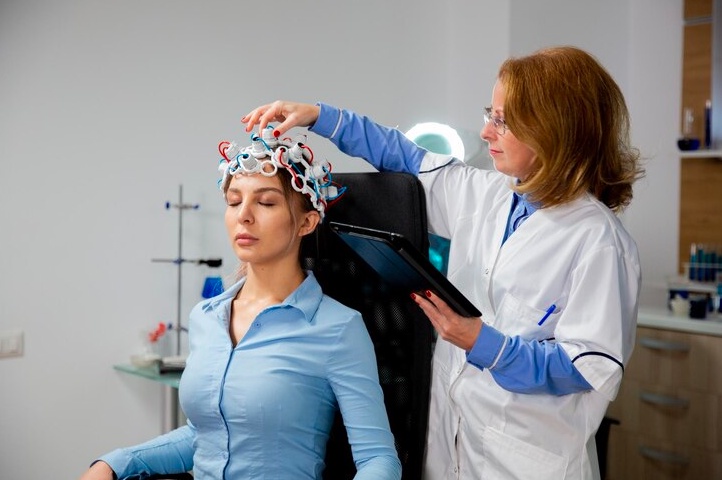Depression can cast a shadow over every aspect of life, making even the simplest tasks feel overwhelming. For those who have tried various therapies and medications without success, hope can seem elusive. However, advancements in medical technology offer new avenues for treatment. One such innovation is Transcranial Magnetic Stimulation (TMS), a non-invasive procedure that is gaining recognition for its effectiveness in managing depression. In this blog post, we'll explore the ins and outs of TMS and its deeper variant, Deep Transcranial Magnetic Stimulation (dTMS), shedding light on how they are revolutionizing modern therapy.
Understanding Transcranial Magnetic Stimulation (TMS)
TMS is a form of neuromodulation that involves the use of magnetic fields to stimulate nerve cells in the brain. Unlike medications that flood the entire body with chemicals, TMS targets specific areas of the brain associated with mood regulation, such as the prefrontal cortex. By delivering focused magnetic pulses, TMS can activate or inhibit neural activity, restoring balance to brain circuits disrupted by depression.
How Does TMS Work?
During a TMS session, the patient sits comfortably in a chair while a technician positions a magnetic coil against their scalp. The coil generates pulses of magnetic energy, which penetrate the skull and stimulate the underlying brain tissue. These pulses are typically administered in repetitive patterns, known as stimulation protocols, over the course of several sessions.
The Science Behind TMS
Research suggests that TMS induces changes in brain activity by altering the flow of neurotransmitters, the chemical messengers that transmit signals between neurons. In individuals with depression, certain brain regions may exhibit abnormal patterns of activity or connectivity. TMS seeks to correct these abnormalities by modulating neural circuits involved in mood regulation.
Benefits of TMS
One of the primary advantages of TMS is its non-invasive nature. Unlike electroconvulsive therapy (ECT), which requires anesthesia and can cause memory loss, TMS does not involve sedation or significant side effects. This makes it an attractive option for individuals who prefer non-pharmacological approaches or have not responded well to traditional treatments.
Deep Transcranial Magnetic Stimulation (dTMS)
While standard TMS targets superficial regions of the brain, dTMS reaches deeper structures by utilizing specialized coils designed to penetrate further into the cortex. This extended reach allows dTMS to target areas implicated in mood disorders with greater precision, offering potentially enhanced therapeutic benefits for treatment-resistant depression.
The Clinical Evidence
Numerous clinical trials have demonstrated the efficacy of both TMS and dTMS in alleviating symptoms of depression. Meta-analyses of randomized controlled trials have shown significant improvements in depressive symptoms compared to sham treatment, with response rates ranging from 30% to 50%. These findings have led to the approval of TMS and dTMS by regulatory agencies such as the FDA for the treatment of depression in adults who have not responded to other therapies.
Is TMS Right for You?
As with any medical intervention, the decision to pursue TMS or dTMS should be made in consultation with a qualified healthcare provider. Factors such as the severity of depression, previous treatment history, and individual preferences will all influence the appropriateness of TMS as a therapeutic option. It is essential to undergo a thorough evaluation to determine candidacy and establish realistic expectations for treatment outcomes.
Conclusion: A Beacon of Hope
Depression can be a formidable adversary, but it is not insurmountable. Transcranial Magnetic Stimulation and Deep Transcranial Magnetic Stimulation represent promising advancements in the field of psychiatry, offering renewed hope for those struggling to find relief. By harnessing the power of magnetic fields to recalibrate the brain's neural circuitry, these innovative therapies are reshaping the landscape of modern psychiatric care. If you or someone you know is battling depression, consider exploring the potential benefits of TMS under the guidance of a knowledgeable healthcare professional. Remember, the journey to healing begins with a single step towards a brighter tomorrow.


No comments yet